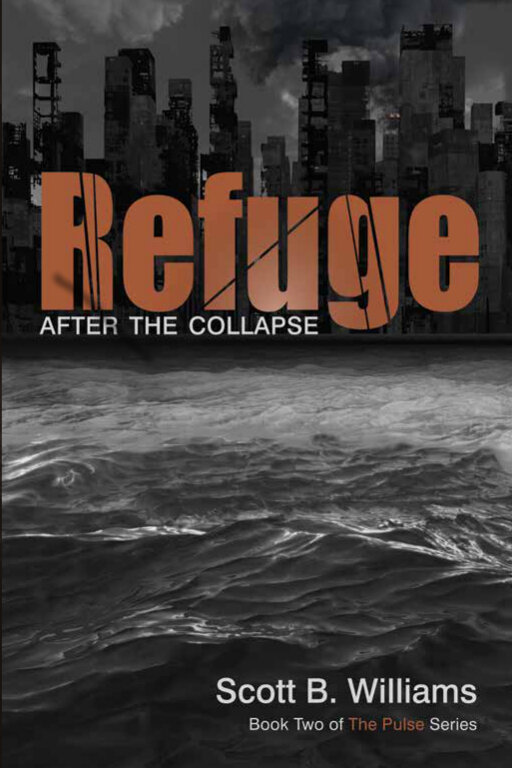Book Two: REFUGE
THE RIVETING SEQUEL TO THE PULSE—A STORY OF SURVIVAL AFTER THE CATASTROPHIC DESTRUCTION OF AMERICA’S POWER GRID THROWS THE COUNTRY INTO DARKNESS AND CHAOS
With the power, communication and transportation grids destroyed by massive solar flares, America has spiraled into anarchy and violence. Artie Drager and his daughter Casey reunite after his harrowing voyage across the Caribbean and her traumatic escape from a crumbling New Orleans and a deranged abductor.
But their situation remains dire. The Gulf Coast swamps have provided a brief respite from danger, but Artie, Casey and their small band of friends know they must keep moving to stay ahead of the urban mobs. Although they accept Artie’s plan to sail to safety aboard his brother’s catamaran, none are aware that vicious marauders have ransacked the boat and left his brother to die.
Meanwhile, Casey’s ordeal has left her shaken. Her courage and adaptability are tested again when the man she loves has become separated from the group. Casey must now decide whether to stay behind to save him or continue on with her father and uncle in search of refuge.
The Pulse Series
My favorite adventure stories have always been those that cast ordinary people into extraordinary circumstances and predicaments their previous lives could not possibly prepare them for. Although I sometimes enjoy reading works of fiction that involve larger-than-life characters with highly specialized training and superior fitness, skills and abilities, you won't find any fearless heroes of that kind in ThePulse.
After experiencing firsthand the aftermath of Hurricane Katrina and living in the impact zone where the power grid was destroyed and stayed down for weeks, I often wondered what it would be like if that situation was much more widespread and long-lasting.If a solar flare or EMP attack took out electrical power and shut down most forms of communication and transportation in North America, the aftermath would be far worse than that of any hurricane and there would be no sudden influx of crews from neighboring states to work around the clock to rebuild the grid. Grocery stores would soon be stripped bare and no delivery trucks would be running to replenish their stocks. People would become desperate in short order, especially in large urban areas where the limited supplies available would be quickly consumed. Far lesser events have shown that such desperation quickly strips away the thin veneer of civilization that keeps complex societies in order. Violence would become rampant, and law enforcement agencies would be overwhelmed and unable to protect the citizens of their jurisdictions. Those who would survive such chaos would have to act on their own and act quickly to seek safe refuge.
In The Pulse I chose to focus not on the technical aspects of the solar event or the subsequent rebuilding and reorganizing of civilization in the aftermath, but rather on the immediate concerns of two groups of characters. Casey Drager and her roommate, Jessica, are college students at Tulane University, in New Orleans. Casey's friend, Grant, an older graduate student who was living in the city after the devastation of Katrina, knows from experience that they have to get out and get out fast. Casey's father, who is especially close to his only daughter after the loss of her mother in a car accident years before,is away on a short sailing vacation in the Caribbean with his brother when the pulse strikes. Among islands a thousand miles from the U.S. mainland and suddenly cut off from all communication with his daughter, Artie is desperate to find out if she is okay. Like any father in such a predicament, Artie Drager will do everything in his power to find his daughter, but with no transportation back to North America faster than his brother's sailboat, he has no way of knowing if she will still be there when he finally reaches New Orleans. Obstacles and dangers await both parties as they deal with their situations as best they can, and everyone involved has to quickly adapt to the new reality of a world without the safety net of technology and organized society.
